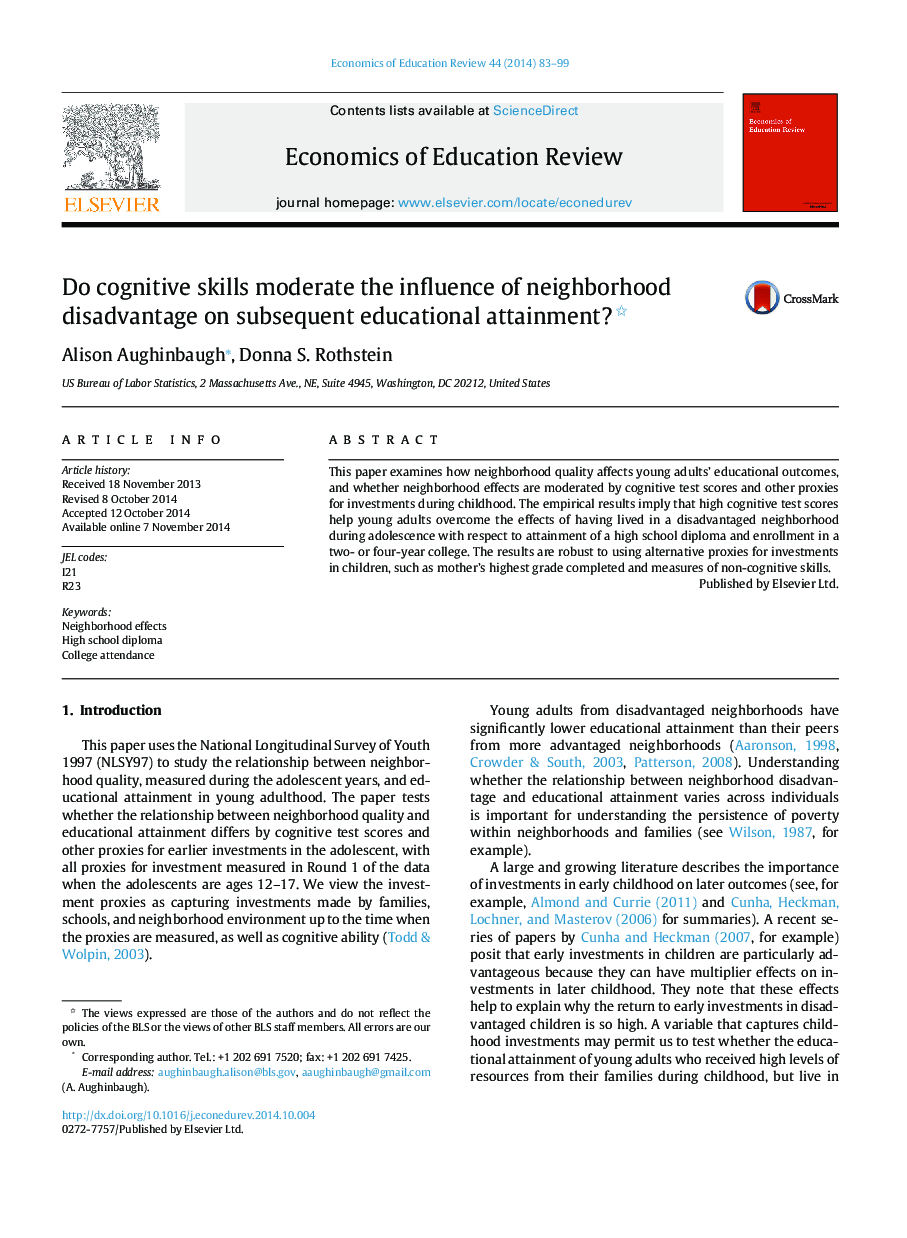| Article ID | Journal | Published Year | Pages | File Type |
|---|---|---|---|---|
| 354367 | Economics of Education Review | 2015 | 17 Pages |
•We examine how neighborhood quality affects young adults’ education, and whether the effects are moderated by childhood cognitive test scores.•We use both an index of census tract characteristics and census tract poverty rates to measure neighborhood disadvantage.•Young adults who lived in disadvantaged neighborhoods during adolescence are less likely to obtain a high school diploma or enroll in college.•High cognitive test scores and high non-cognitive skills help young adults overcome the effects of having lived in a disadvantaged neighborhood.
This paper examines how neighborhood quality affects young adults’ educational outcomes, and whether neighborhood effects are moderated by cognitive test scores and other proxies for investments during childhood. The empirical results imply that high cognitive test scores help young adults overcome the effects of having lived in a disadvantaged neighborhood during adolescence with respect to attainment of a high school diploma and enrollment in a two- or four-year college. The results are robust to using alternative proxies for investments in children, such as mother's highest grade completed and measures of non-cognitive skills.
